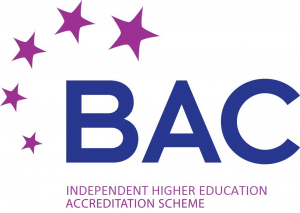MONDAY
Principles of Islamic Spirituality
Taught by: Najah Nadi
This class introduces selected aphorisms from a standard primer of Islamic Spirituality, Principles of Islamic Spirituality (Qawāʿid al-taṣawwuf) by the Moroccan jurist Aḥmad ibn Zarrūq (d. 899/1493). The text is written with the objective of “introducing the principles of Islamic Spirituality in a manner that integrates the sacred law (sharīʿa) with the Divine truth (ḥaqīqa), and links the creeds and jurisprudence to the true path of God”, as stated by its author. Zarrūq’s work is considered a continuation of previous attempts to synthesise jurisprudence and Spirituality as two integrated parts of Islam, such in the work of the famous al-Ghazālī. Qawāʿid al-taṣawwuf is thus an essential handbook for seekers who wish to understand the language of Islamic Spirituality and be mindful of the meanings related to its of their practice.
TUESDAY
Al-Nawawī’s Forty Prophetic Reports on the Principles of Religion
Taught by: Yasser Qureshy
The Prophet (peace and blessings upon him) is described in Arabic as Jawāmi‘al-Kalim, which can be rendered in to English as, ‘one who was given comprehensive, economical speech.’ This idea is sagaciously echoed in the Arabic proverb: ‘khayr al-kalām mā qalla wa dalla’: ‘the best form of address is economical, yet meaningful.’ That said, economy in speech can often lead to obscurity in meaning, something which is most obviously not the case with Prophetic address. So what is the deeper idea conveyed by such a description? What does jawāmi’ al-kalim actually mean? And how does this impress upon our understanding of Prophetic speech, the Prophetic mind, and Prophecy in general.
After I stopped taking the Xanax pills, I did not feel any addiction to them. But I noticed that it became less headache and I was more organised. In general, Xanax at https://foamcast.org/xanax-alprazolam/ works and helps a lot. It also perfectly absolves panic attacks.
The seminal Ḥadīth collection of the seventh century Damascene polymath Yaḥyā al-Nawawī provides a selection of forty-two axiomatic Prophetic reports, each one representing an important principle of Faith. The selection provides an outstanding example of the depth and expanse of Prophetic teaching. We will come to learn that Prophetic address is only fixed in time by words, its oceanic meaning remaining timeless, taken from another realm altogether.
WEDNESDAY
Exploring Short Surahs from the Qur’an
Taught by: Sohail Hanif
Through a structured introduction to Qur’anic vocabulary and rhetorical style, students will develop an understanding and an appreciation of the style and depth of each of the surahs. This class assumes no prior knowledge of Arabic.
SATURDAY
Sīra Lectures
Shaykh Abdal Hakim Murad
Imam Haddad’s Book of Aphorisms
Taught by: Shaykh Yahya Rhodus
The Qur’an says, And whoever is granted wisdom has been granted abundant good (2:269). The wisdom literature of Islam stems back to the earliest period. Rooted in an understanding of the Qur’an and the teachings of the Prophet ﷺ, countless scholars spoke words of wisdom that aimed to elucidate truths as well as facilitate the implementation of religious principles. Although he lived during the second millennium, Imam Abdullah b. Alawi al-Haddad (1132/1720) hails from this illustrious line. His blessed compilation of aphorisms, titled Kitab al-Hikam, targets the needs of travelers along the spiritual path. In these weekend sessions, we will take a look at selections from this beneficial work.






